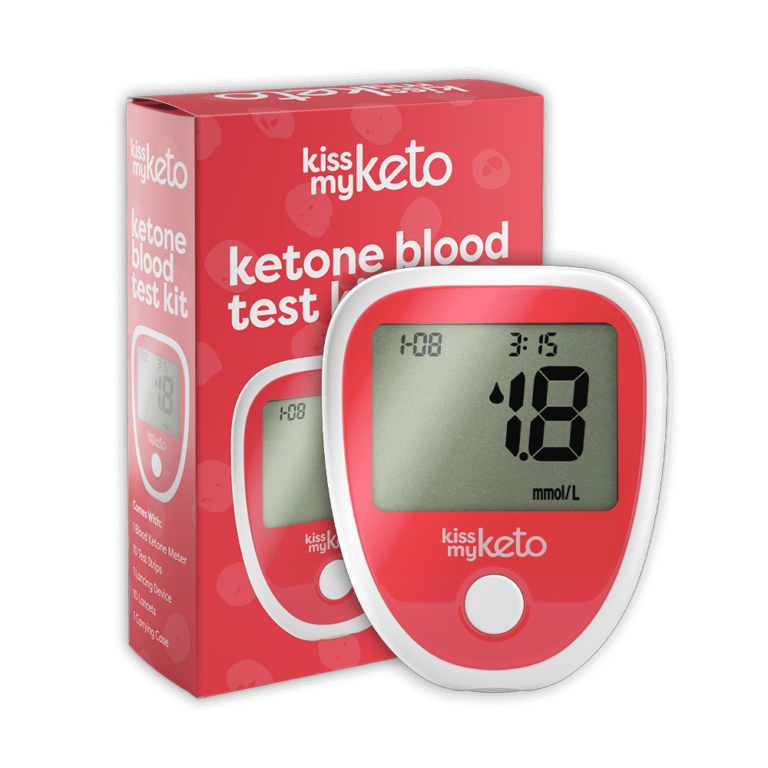Managing stress and sleep on keto after 40 is crucial for maintaining both physical and mental well-being. As we age, our bodies undergo changes that affect hormone regulation, energy levels, and recovery, making it even more important to prioritize these aspects of health. While the ketogenic diet offers significant benefits like weight loss and improved metabolic function, its effects on hormones can be challenging without proper attention to stress management and sleep quality. In this article, we will explore practical strategies to help you balance stress and sleep on keto after 40, ensuring you get the most out of your diet while supporting overall health.
Tips for Maintaining a Balanced Keto Diet After 40
Achieving a well-rounded keto diet over 40 requires a thoughtful approach. As your body ages, it’s essential to focus on nutrient-dense foods rich in vitamins and minerals like leafy greens, avocados, and nuts. These can help support your overall health and well-being while following a ketogenic lifestyle. Additionally, incorporating a variety of protein sources such as fish, poultry, and tofu can help maintain muscle mass and keep you feeling full and satisfied.
It’s crucial to pay attention to hydration when following a keto diet, especially as you get older. Water intake is key to supporting digestion, metabolism, and overall bodily functions. Opt for plain water throughout the day and consider adding electrolytes to your routine to help replenish nutrients lost through ketosis. Staying adequately hydrated can also aid in managing cravings and preventing overeating, which are common challenges for many individuals on a ketogenic diet.
Benefits of Incorporating Stress-Reducing Activities into Your Routine
Stress-reducing activities are integral for maintaining overall well-being, especially when following a keto diet. Engaging in activities like yoga, meditation, or deep breathing exercises can help lower cortisol levels and promote a sense of calmness. These practices not only benefit your mental health but also have a positive impact on your physical health by reducing inflammation and supporting a healthy immune system.
Incorporating stress-reducing activities into your routine can also enhance cognitive function and improve focus. By taking time to unwind and relax, you allow your brain to rest and recharge, ultimately boosting productivity and decision-making skills. Additionally, these activities can help improve sleep quality, leading to better energy levels and overall mood throughout the day.
Importance of Prioritizing Quality Sleep While Following a Keto Diet
Quality sleep is a crucial component of a successful ketogenic diet, as it plays a vital role in regulating hormones such as cortisol and insulin. When sleep is compromised, it can lead to imbalances in these hormones, which may hinder weight loss and affect blood sugar levels. Therefore, ensuring you get sufficient and restful sleep is essential for optimizing your keto journey.
Moreover, lack of quality sleep can also increase stress levels, which in turn may trigger cravings for high-carb foods that can derail your ketosis efforts. By prioritizing sleep and establishing a bedtime routine that promotes relaxation and restfulness, you can better manage stress and support your body’s ability to burn fat efficiently while following a ketogenic diet. Remember, quality sleep is not just a luxury but a necessity for overall health and well-being, especially when embracing a keto lifestyle.
How to Manage Stress Through Mindfulness and Meditation Techniques
Mindfulness and meditation are powerful tools that can help in managing stress effectively. By practicing mindfulness, individuals can become more attuned to their thoughts, feelings, and bodily sensations, enabling them to respond to stressors in a calmer and more composed manner. Engaging in meditation allows for the cultivation of a sense of inner peace and relaxation, promoting a state of mental clarity and emotional balance. Incorporating these practices into daily routines can aid in creating a sense of mindfulness that helps in coping with stressors more effectively.
Through mindfulness and meditation techniques, individuals can learn to focus on the present moment, rather than ruminating on past events or worrying about the future. This ability to stay present can significantly reduce feelings of anxiety and overwhelm caused by stress. By incorporating deep breathing exercises and guided meditation sessions, individuals can enhance their self-awareness and develop a greater sense of resilience in dealing with life’s challenges. As a result, the practice of mindfulness and meditation can lead to a more positive outlook and improved overall well-being.
Impact of Stress on Hormones and Weight Management on a Keto Diet
Stress is a common factor that can significantly impact hormone levels and weight management when following a keto diet. High levels of stress trigger the release of cortisol, often referred to as the “stress hormone.” Elevated cortisol levels in the body can lead to imbalances in other hormones such as insulin, affecting the body’s ability to maintain stable blood sugar levels while on a ketogenic eating plan. These hormonal fluctuations may also influence how the body stores and utilizes fat for energy, potentially hindering weight management progress on a keto diet.
Moreover, chronic stress can disrupt the body’s natural ability to regulate appetite and satiety cues, making it easier to overeat or crave unhealthy, high-carb foods while on a ketogenic diet. This can create challenges in adhering to the macronutrient ratios crucial for achieving ketosis and reaping the metabolic benefits associated with this dietary approach. Managing stress levels through mindfulness techniques, adequate sleep, and lifestyle modifications is essential for supporting hormonal balance and promoting successful weight management outcomes on a keto diet.
Creating a Relaxing Bedtime Routine to Improve Sleep Quality
A calming bedtime routine can significantly enhance the quality of your sleep, supporting your overall well-being and mental clarity. Start by establishing a consistent schedule where you go to bed and wake up at the same time every day. This consistency helps regulate your body’s internal clock, making it easier to fall asleep and wake up feeling refreshed. Incorporating relaxing activities like reading a book, taking a warm bath, or practicing gentle stretching exercises can signal to your body that it’s time to wind down and prepare for sleep.
Avoid screen time at least an hour before bed, as the blue light emitted from devices can disrupt your body’s production of melatonin, a hormone crucial for regulating sleep. Instead, dim the lights in your surroundings to signal to your body that it’s time to relax. Creating a quiet and peaceful sleep environment, free from distractions and noise, can further promote restful sleep. Consider using earplugs or a white noise machine to block out any disruptive sounds that may interfere with your rest.
Strategies for Dealing with Late-Night Cravings on a Keto Diet
When following a keto diet, late-night cravings can be a common hurdle for many individuals. One effective strategy to combat these cravings is to ensure that your meals during the day are well-balanced and satisfying. Include an adequate amount of protein, healthy fats, and fibrous vegetables in your meals to help keep you feeling full and satisfied throughout the day. By avoiding extreme hunger, you may be less likely to succumb to late-night temptations.
Another helpful strategy is to keep low-carb, keto-friendly snacks on hand for those moments when cravings strike. Opt for snacks that are rich in protein and healthy fats, such as mixed nuts, cheese slices, or hard-boiled eggs. These options can help curb your cravings without derailing your keto diet. Additionally, staying hydrated throughout the day can also help reduce feelings of hunger and prevent mindless snacking in the evening. Remember to listen to your body and choose nutritious options to support your health and keto goals.
The Connection Between Stress, Sleep, and Blood Sugar Levels on Keto
Stress, sleep, and blood sugar levels are intricately linked when it comes to following a ketogenic diet. The body’s stress response can lead to fluctuations in blood sugar levels, which may impact sleep quality and overall well-being on a keto diet. When stress levels are high, the body releases cortisol, a hormone that can raise blood sugar levels and interfere with the body’s ability to enter a restful sleep state.
Moreover, inadequate sleep can disrupt blood sugar regulation and increase stress levels, creating a cycle that is detrimental to maintaining ketosis and overall health. When sleep is compromised, the body’s insulin sensitivity may decrease, leading to higher blood sugar levels and potential challenges in staying in ketosis. Prioritizing quality sleep and managing stress effectively are crucial components of a successful ketogenic diet, as they play a significant role in maintaining balanced blood sugar levels and overall metabolic health.
Utilizing Supplements to Support Stress Management and Sleep on Keto
When following a ketogenic diet, especially while managing stress and prioritizing quality sleep, incorporating supplements can be beneficial. Certain supplements can support stress management and promote better sleep quality while on a keto diet. Some key supplements to consider include magnesium, which is known for its calming effects and ability to improve sleep quality. Additionally, adaptogens like ashwagandha and rhodiola rosea can help the body better adapt to stress and promote a sense of calmness.
Another useful supplement for stress management and sleep support on a keto diet is melatonin. Melatonin is a hormone that regulates the sleep-wake cycle and can help improve sleep quality, especially for individuals experiencing difficulty falling or staying asleep. Additionally, omega-3 fatty acids, commonly found in fish oil supplements, have been shown to have anti-inflammatory properties that can support stress management and overall well-being while following a ketogenic diet. It’s important to consult with a healthcare provider before incorporating any new supplements into your routine to ensure they align with your specific health needs and goals.
Seeking Professional Help for Chronic Stress or Sleep Issues on Keto
For anyone experiencing persistent struggles with managing chronic stress or sleep issues while following a keto diet, seeking professional help can be a crucial step toward finding relief and achieving overall well-being. Consulting with a healthcare provider, such as a nutritionist, therapist, or sleep specialist, can provide personalized guidance and support tailored to your specific needs. These professionals can offer valuable insights, strategies, and resources to help you address the root causes of your stress or sleep disturbances, and develop effective interventions to improve your quality of life.
It is important to remember that seeking professional help is not a sign of weakness, but rather a proactive approach to taking care of your mental and physical health. By working with experts in the field of nutrition, mental health, or sleep medicine, you can develop a comprehensive plan that takes into account the unique challenges of following a keto diet while addressing underlying stress or sleep issues. With the guidance and support of qualified professionals, you can gain the tools and strategies necessary to navigate these challenges successfully and enhance your overall well-being.
Conclusion
Addressing stress and sleep on keto after 40 is vital to achieving long-term success with the diet. By focusing on stress-reducing techniques such as mindfulness, maintaining a consistent bedtime routine, and supporting your body with key supplements, you can optimize your health and enhance the benefits of keto. Managing stress and getting quality sleep will not only help with hormone balance and weight management but also improve overall well-being. Remember, achieving your health goals on keto isn’t just about what you eat—it’s about nurturing your mind and body through proper stress and sleep management.

FAQ: Stress and Sleep on Keto After 40
1. Why is managing stress important for a keto diet after 40?
Managing stress is critical for individuals over 40 on a keto diet because elevated stress levels can disrupt hormone balance, particularly cortisol. High cortisol levels can lead to increased cravings, blood sugar fluctuations, and challenges in maintaining ketosis, which may hinder weight loss and overall health.
2. How does lack of sleep affect ketosis and weight management?
Poor sleep negatively impacts ketosis and weight management by increasing cortisol levels and reducing insulin sensitivity. This can lead to higher blood sugar levels, making it harder for your body to stay in ketosis. Additionally, lack of sleep can lead to cravings for high-carb foods, which may derail your keto efforts.
3. What are some effective stress-reducing techniques for those on keto after 40?
Incorporating mindfulness practices such as meditation, yoga, or deep breathing exercises can significantly reduce stress. Regular physical activity, spending time in nature, and engaging in hobbies that promote relaxation can also help manage stress effectively while on keto.
4. How can I improve my sleep quality while following a keto diet?
To improve sleep quality, establish a consistent bedtime routine by going to bed at the same time each night. Avoid screen time an hour before bed, create a calming environment, and consider relaxing activities like reading or taking a warm bath. Magnesium supplements can also help promote relaxation and better sleep.
5. Can stress or poor sleep kick me out of ketosis?
Yes, stress and poor sleep can affect ketosis. Elevated cortisol levels from stress or lack of sleep can lead to increased blood sugar levels, which may disrupt ketosis. Managing stress and prioritizing quality sleep are essential for maintaining ketosis and achieving your health goals on keto.
6. What supplements can help with stress and sleep on a keto diet?
Magnesium is an excellent supplement for relaxation and improving sleep quality. Adaptogens like ashwagandha can help reduce stress, while melatonin can support your sleep-wake cycle. Always consult with a healthcare provider before starting new supplements.
7. How does stress impact weight management on keto after 40?
Stress can increase cortisol, which may lead to overeating and cravings for high-carb, comfort foods. It can also affect how your body stores fat, particularly around the abdomen, making it harder to manage weight effectively on keto. Managing stress helps regulate hormones and supports fat loss.
8. Can following a keto diet help with stress reduction?
Yes, the keto diet may help some individuals with stress reduction by stabilizing blood sugar levels and providing steady energy throughout the day. However, it’s important to combine keto with stress-reducing activities like mindfulness, exercise, and proper sleep to maximize the benefits.
9. Is it normal to experience sleep disturbances when starting keto?
Yes, some people may experience sleep disturbances when first starting keto, often due to changes in energy levels and the body’s adjustment to burning fat for fuel. Ensuring adequate intake of electrolytes and staying hydrated can help reduce sleep issues during the adaptation phase.
10. When should I seek professional help for stress or sleep issues on keto?
If you experience chronic stress, anxiety, or persistent sleep problems that affect your quality of life, it’s important to seek professional help. A healthcare provider, nutritionist, or sleep specialist can offer personalized strategies and support to address these issues while following a keto diet.
References :
- Neurology Journal: Ketogenic Diet Intervention Improves Sleep in Patients with Relapsing Multiple Sclerosis, April 28, 2023
- Frontiers in Aging Neuroscience: Ketogenic diet prevents chronic sleep deprivation-induced Alzheimer’s disease by inhibiting iron dyshomeostasis and promoting repair via Sirt1/Nrf2 pathway 01 September 2022
- NIH/NLM/MCBI: Effects of Diet on Sleep Quality, 2016 Sep; 7







